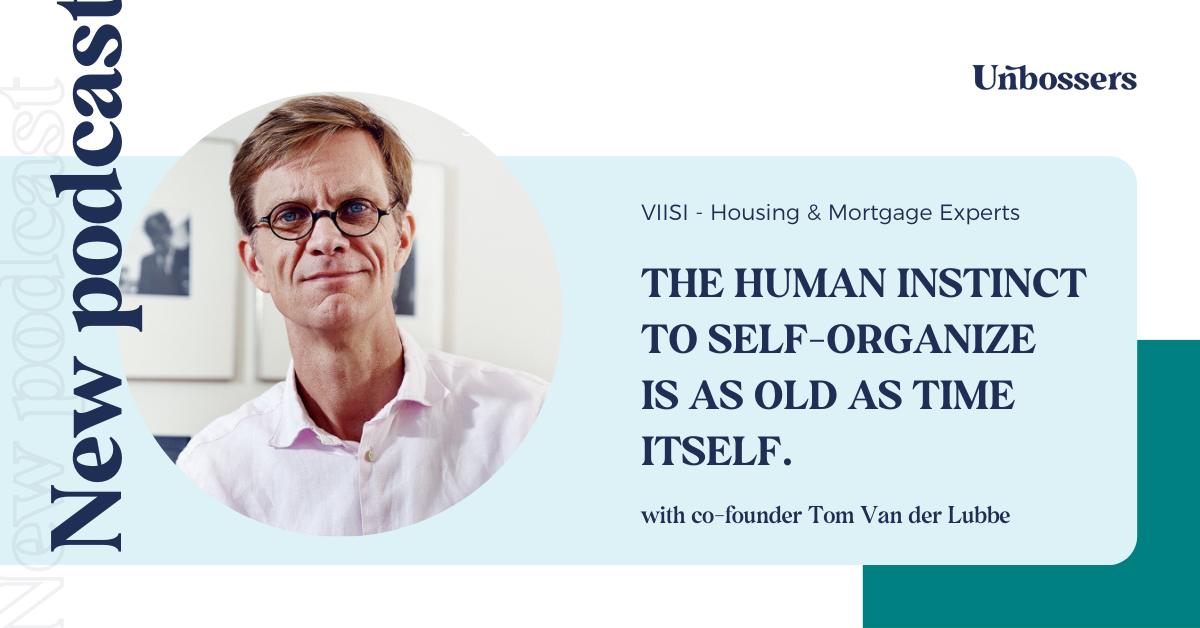#Teams #CorporateCulture
What if we are born to self-organize?

Sit back and take in the foundations of an organization that was named “best employer of the year” for the 4th consecutive time in 2022 as well as amongst the “best workplaces in Europe” in 2021.
Viisi is a Dutch organization specialized in mortgage advice. They have the ambition to change the world of finance, to make their industry better, more sustainable and more focused on the long term. In this podcast, Nick has a conversation with Tom van der Lubbe, co-founder of Viisi. Tom shares some of Viisi’s crucial recipes to build a people-first and customer-driven organization, starting from the belief that as humans we are born to self-organize.
Some of the topics we discuss
- Does self-organization work in times of crisis?
- Why every organization should consider rotating roles more often
- What are the pitfalls of being recognized as ‘best employer of the year’?
- What is the role of ‘primes inter pares’, rather than bosses?
- How does a ‘beyond budgeting ‘approach suit the adaptation of an organization in times of crisis?
- Why do most corporates look mire like communism rather than capitalism?
“Imagine you would tell your wife or husband at the end of the year: “In March you said this to me and I was not happy about it” – everybody laughs, right? whilst in a company it’s exactly how we do it. “
– states Tom about classical performance reviews.
10 rules Viisi leads and lives by, always starting from ‘less is more’
A common misconception about self-organization is that there are no rules. Tom and Nick talk about the 10 rules at Viisi which are ‘principles of working together’ rather than real rules:
- No bosses but primes inter pares
- No functions but roles (no business cards)
- We work with autonomy (not the permission culture)
- We work in a horizontal way, very team focused
- We don’t have bonuses, only fixed salaries
- We don’t have performance reviews (only peer-to-peer feedback)
- We don’t have classical hiring – team is hiring themselves
- No handbooks only ‘golden rule’
- We try to avoid budgets as much as possible -> beyond budgeting
- We have a culture of radical transparency
Final observation: Capitalism versus Communism
Tom and Nick leave the listener with this final observation that will really trigger you:
Ask 10 executives which economic model they prefer: capitalism (decentralized, free market) versus communism (centralized, controlled market). The vast majority will opt for capitalism. Even if it has its obvious shadow sides, it’s still better than any communistic experiment we’ve seen so far. But when we then look at the organization structure and management style of these same managers then it is paradoxically enough very centralized and controlled, e.g. like communism.
Listen or watch full episode here:
About Unbossers Podcast
This show and everything else we Unbossers do is created by and for change makers for human organizations. Our goal is to inspire and educate as many people as possible on how to combine the pursuit of business success with care for humanity in a way that benefits all stakeholders of your organization. We talk with thought leaders and experts about the mindsets, skills, tools, processes and systems that turn business mambo jambo buzzwords like employee empowerment, customer centricity, agility and intrapreneurship into daily operational reality.
Join
our Unbossers Network
Build a people first-organization the unbossed way:
Do you want to learn concrete steps on how to combine the pursuit of business success with putting people first? Just take a look at our Unbossers Network which offers low-key accessibility into global connections and teachings for you and your organisation.
We will be happy to welcome you there!